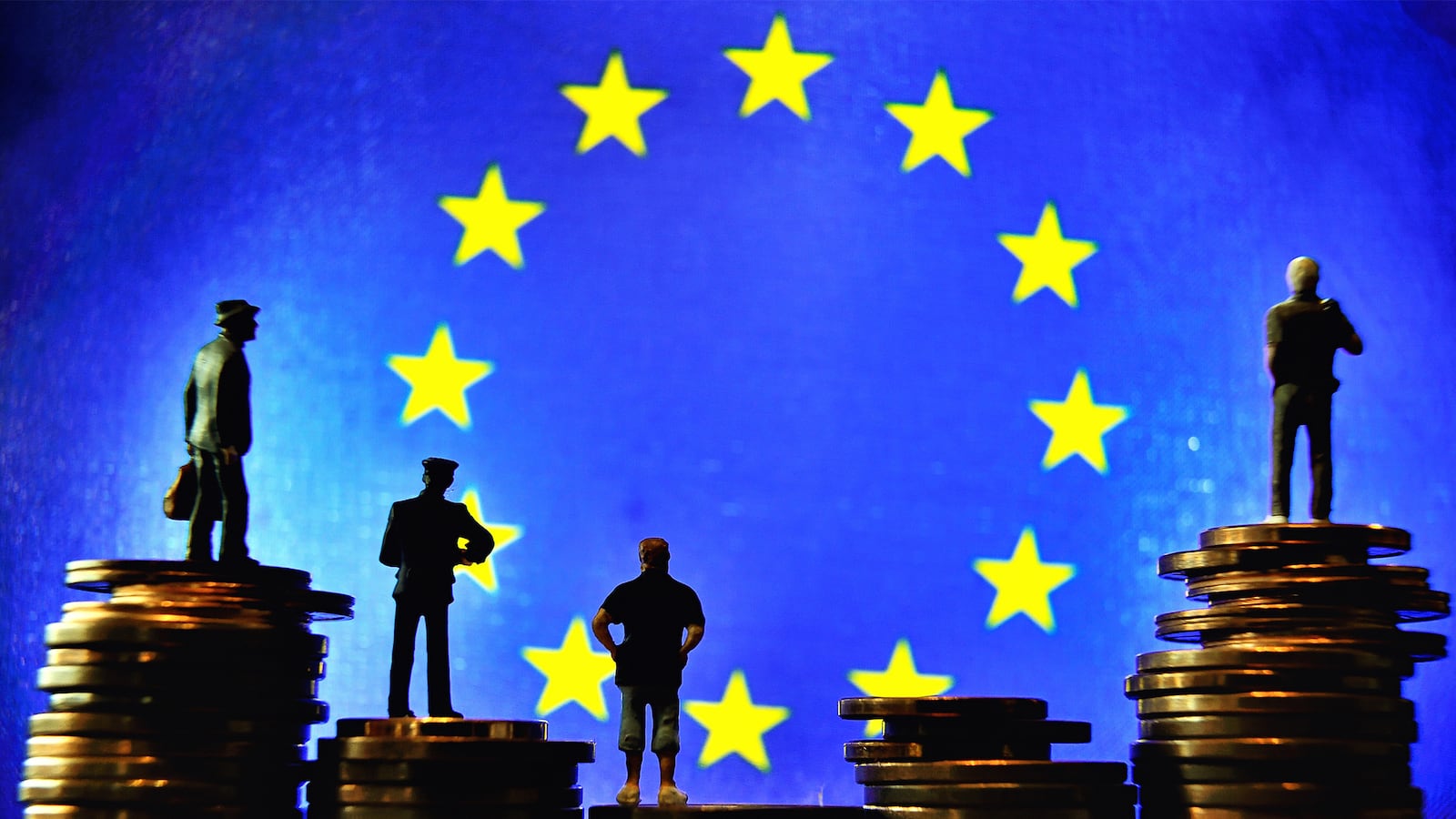Why should people who work less and get paid more have favorable treatment? That, crudely, is the view of Greece from Estonia to Bulgaria, in the region we used to call “eastern Europe.” People may feel sorry for Greeks on a personal level, but why should hard-up taxpayers in the Baltic states or Slovakia pay higher taxes or even borrow money to help people whose plight is their own fault?
Greeks retire early on what look like generous pensions. The systematic failure to create the elements of a modern European state, such as establishing an independent statistics office, bringing in land registries, reforming public procurement, liberalizing labour and product markets and the like induces a mixture of contempt and outrage in countries which made the effort to turn themselves from post-communist ruins to success stories in barely a decade. Surely Ukraine is a more deserving candidate for European Union assistance?
As it happens, I have spent the last week in Ukraine (in Lviv) and Greece. The similarities are striking. Both countries have been systematically let down by a venal and incompetent political class. Elections offer a dismal choice between crooks and idiots (with a lot of overlap). Both countries have troubling right-wing extremist groups which operate to some extent outside the law—Pravy Sector in Ukraine, Golden Dawn in Greece. But public sentiment is far more sensible. The majority in both countries feels that European integration is their destiny and birthright. Both countries will have to change a lot for that goal to become reality.
It is tempting but wrong to see this solely as a question of morality. Greece has broken the rules so it must be punished. Ukraine is playing by the rules, so it must be rewarded. The clownish student politicians of Syriza have squandered trust and weakened the economy by their grandstanding. Greeks voted them in, and backed them in the referendum. So they should face the consequences.
The problem with this approach is that it overemphasizes the sins of the political class, and puts too much pain on the shoulders of ordinary people. When we were dealing with the regime of Viktor Yanukovych in Kiev, we did not expect the Ukrainian people to bear all the consequences. We still try to do what we can in Belarus. When Romania and Bulgaria were breaching the judicial-reform and anti-corruption promises they made on joining the EU, we did not abandon them. We intensified our efforts.
Approaching difficult problems only in terms of rules, rewards, and penalties misses the most important issue: These countries are still there once the game is over. We will still have to deal with them. The worst outcome for Europe is a failed state on its borders (we have seen that in Syria and Iraq; it could come a lot closer to home).
The unpalatable truth is that the EU needs to behave like an empire. All its members will benefit if it secures the periphery. All will lose if it doesn’t. The largely overlooked consequence of the Greek crisis is that Europe has already taken important steps towards greater integration. The European Parliament debate in which Alexis Tsipras faced a fiery critique from Guy Verhofstadt, a Belgian liberal, was a remarkable first: that often-despised body played its real role as a sounding board for trans-European public opinion.
In short, the same combination of political will and institutional muscle which the EU needs to exert in Greece is what is also needed in Ukraine. For that matter, it could also make the EU into a lethal adversary for the Putin regime in Moscow.






